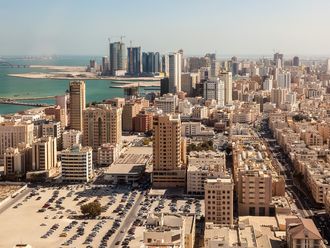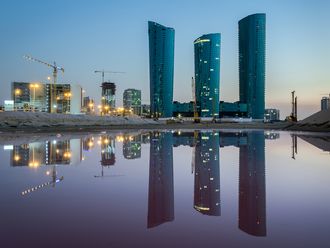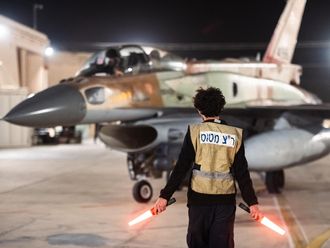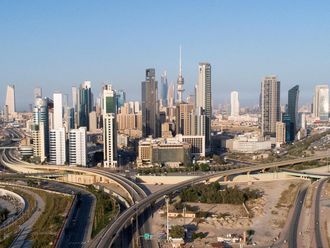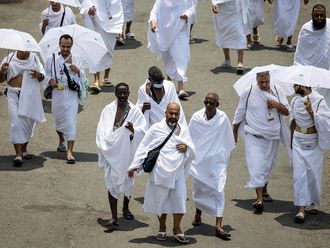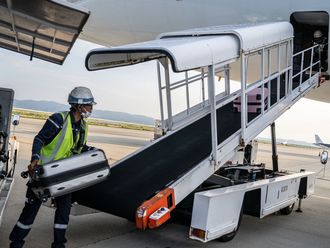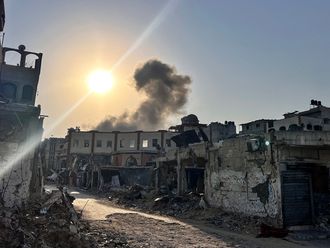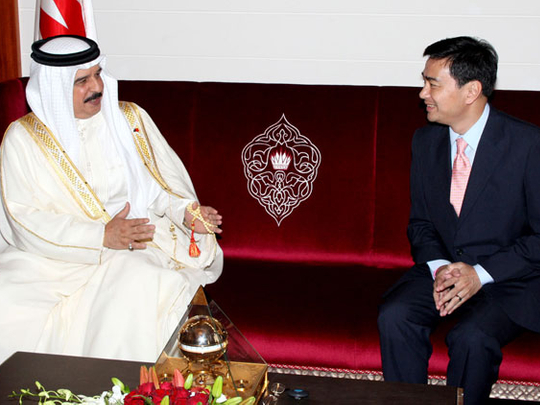
Manama: Bahrain and Thailand have agreed to bolster their cooperation on food security, Islamic finance, education, culture and construction.
In a joint communiqué at the end of Thai Prime Minister Abhisit Vejjajiva's two-day visit to Manama, the two countries said that they had convergent ideas and views on bilateral and multilateral cooperation, the situation in the Middle East and on closer consultations and ties between the Gulf Cooperation Council and the Association of Southeast Asia Nations (Asean).
In an interview with local media, Vejjajiva said that Manama and Bangkok have agreed to set up a food stockpile and distribution centre in Bahrain that will serve the GCC region.
The centre will initially be used for food products such as sugar and rice, but will later distribute larger items, including building materials and car parts. The supply food will not be confined to Bahrain and will be distributed in the other Gulf countries, he said.
“This is a region with substantial purchasing power and good growth prospects where we have matching of demand and supply on the issue of food and we feel we can contribute to food security in the region,” Vejjajiva said. A feasibility study will determine the amount of investment and how the centre will contribute to overall trade.
“We will need up to six months to complete the study.”
Vejjajiva said that the centre would help boost trade figures between Thailand and the GCC countries.
“Our preliminary anticipation is that we can increase trade by three or four times quite easily, because GCC countries actually import 90 per cent of their food stuff and we currently only participate with less than five per cent,” he said.
Thailand expects the Gulf countries to help it with its energy requirements. Trade volume between Bahrain and Thailand stands at around $360 million.
The Thai premier said that Bangkok would seek expertise and technical assistance from Manama as his country looks at issuing Islamic bonds.
“We are hoping to find corresponding banks between Bahrain and Thailand so that prospective investors can have access to finance,” he said.
Other possible joint ventures covered the areas of education and health. “We are very satisfied with the progress we have made over the last year and we are confident that both countries can make good use of these agreements and explore further opportunities for investment,” Vejjajiva said.
But while its relations and cooperation with Bahrain are moving forward steadily, Thailand feels that ties with Saudi Arabia needed a strong push. “We would like to see the normalisation of relations with Saudi Arabia,” Vejjajiva said.
“We are doing all we can to address the concerns of the Saudi side and we ask for the support of all the countries in the Gulf to help us achieve that objective.”
The Thai premier said that a study was underway on signing a Free Trade Agreement (FTA) between Asean and the GCC.
He said Asean already had other FTAs, but wanted to reach out to other partners. An AseanN-China FTA that came into effect on January 1 this year has a combined GDP of $ 6.6 trillion, a total trade of $4.3 trillion and includes 1.9 billion people, making it the world’s third largest free-trade area.
Meeting members of the Bahraini business community, the Thai premier stressed the bonds and close ties between the private sectors of the two countries and thanked Bahrain for supporting Thailand in the global arena.
Referring to the dramatic developments in Bangkok, the Thai prime minister said that he was confident about a solution to the current situation in his country, but insisted that a solution depended on the willingness of the parties involved to achieve it.
Anti-government “Red Shirts” have engaged in two rounds of talks with Vejjajiva, but said on Tuesday that the negotiations had failed and promised a new mass rally.
The Thai premier said that he hoped for more talks, explaining that readiness to talk and agree would bring a solution in sight, but disagreements could defer it for some time.
For the prime minister, the government has softened its stance and its offer to cut down its time in office was a clear signal.
“It now depends on whether the red-shirts will accept it. If the red-shirts also soften their standpoint the situation would return to normal,” he said.
The insistence of the United Front for Democracy against Dictatorship (UDD) to have the House dissolved in a matter of days would not help reach a solution, he said.
"I still hope more talks can be held because the majority of people want to see a way out. Not only with the red shirts, the government also wants to talk to the people’s sector, to listen to their opinions,” Vejjajiva was quoted as saying by the Bangkok Post.


